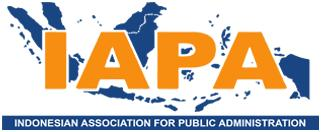Measuring Key Factors in E-Government Participation: A Rasch Modeling Approach with Human Resource Management Considerations
Abstrak
Studi ini mengkaji tentang partisipasi e-government di kalangan warga Indonesia, dengan tujuan untuk mengevaluasi efektivitasnya dalam meningkatkan hubungan antara pemerintah dan warga melalui media sosial dan praktik tata kelola yang baik. Tujuan penelitian meliputi konstruksi dan validasi instrumen survei berdasarkan 15 item pengalaman terkait persepsi e-government, dengan menggunakan pemodelan Rasch untuk menganalisis data dari 101 responden. Hasil penelitian menunjukkan tingkat reliabilitas yang tinggi (Cronbach's Alpha = 0.94) dan korelasi yang signifikan (korelasi skor mentah ke kemampuan = 0.99), yang menegaskan kemampuan instrumen dalam mengukur variabel yang mempengaruhi partisipasi e-government secara efektif. Temuan ini sejalan dengan harapan model Rasch (Infit dan Outfit MNSQ dalam rentang yang dapat diterima), menunjukkan kesesuaian instrumen untuk penilaian yang komprehensif. Sebagai kesimpulan, penelitian ini memberikan wawasan dalam meningkatkan transparansi, akuntabilitas, dan responsivitas pemerintah, hal yang penting untuk membangun kepercayaan dan praktik tata kelola yang efektif di era digital.
ABSTRACT
This study examines the subject matter of e-government participation among Indonesian citizens, aiming to assess its effectiveness in enhancing government-citizen relationships through social media and good governance practices. The objectives include constructing and validating a survey instrument based on 15 experience items related to e-government perception, utilizing Rasch modeling to analyze data from 101 respondents. Results indicate strong reliability (Cronbach's Alpha = 0.94) and significant correlations (Person raw score-to-measure correlation = 0.99), affirming the instrument's capability to measure variables influencing e-government participation effectively. The findings align well with Rasch model expectations (Infit and Outfit MNSQ within acceptable ranges), highlighting the instrument's suitability for comprehensive assessment. In conclusion, this research contributes insights into enhancing government transparency, accountability, and responsiveness, crucial for fostering trust and effective governance in the digital era.
Kata Kunci
Teks Lengkap:
PDFReferensi
Abdulkareem, A. K., & Mohd Ramli, R. (2022). Does trust in e-government influence the
performance of e-government? An integration of information system success model and
public value theory. Transforming Government: People, Process and Policy, 16(1), 1–17.
https://doi.org/10.1108/TG-01-2021-0001
Agarwal, P. K. (2018). Public Administration Challenges in the World of AI and Bots. Public
Administration Review, 78(6), 917–921. https://doi.org/10.1111/puar.12979
Alhanatleh, H., Aboalganam, K., & Awad, H. (2022). Electronic government public value of public
institutions in Jordan. International Journal of Data and Network Science, 6(1), 27–36.
https://doi.org/10.5267/J.IJDNS.2021.10.007
AlMulhim, A. F. (2023). The impact of administrative management and information technology
on e-government success: The mediating role of knowledge management practices.
Cogent
Business
and
https://doi.org/10.1080/23311975.2023.2202030
Management,
(1).
Almuraqab, N. A. S., Jasimuddin, S. M., & Mansoor, W. (2021). An Empirical Study of the
Perception of the End-User on the Acceptance of Smart Government Service in the UAE.
Journal
of
Global
Information
https://doi.org/10.4018/JGIM.20211101.oa11
Management,
(6),
–29.
Defitri, S. Y. (2022). The role of political will in enhancing e-government: An empirical case in
Indonesia.
Problems and Perspectives in Management, 20(1), 69–79.
https://doi.org/10.21511/ppm.20(1).2022.07
Garcia-Rio, E., Palos-Sanchez, P. R., Baena-Luna, P., & Aguayo-Camacho, M. (2023). Different
approaches to analyzing e-government adoption during the Covid-19 pandemic.
Government
Information
https://doi.org/10.1016/j.giq.2023.101866
Quarterly,
(4),
Grimsley, M., & Meehan, A. (2007). e-Government information systems: Evaluation-led design
for public value and client trust. European Journal of Information Systems, 16(2), 134
https://doi.org/10.1057/palgrave.ejis.3000674
Hair, J., Hollingsworth, C. L., Randolph, A. B., & Chong, A. Y. L. (2017). An updated and expanded
assessment of PLS-SEM in information systems research. Industrial Management and
Data Systems, 117(3), 442–458. https://doi.org/10.1108/IMDS-04-2016-0130
Hariguna, T., Rahardja, U., & Sarmini, U. (2022). The Role of E-Government Ambidexterity as the
Impact of Current Technology and Public Value: An Empirical Study. Informatics, 9(3), 1
https://doi.org/10.3390/informatics9030067
Hermanto, B., & Miftahuddin, A. (2021). Tourism experience in Indonesia: A new approach using
the rasch model scale. Geojournal of Tourism and Geosites, 38(4), 1051–1056.
https://doi.org/10.30892/GTG.38409-743
Hujran, O., Al-Debei, M. M., Al-Adwan, A. S., Alarabiat, A., & Altarawneh, N. (2023). Examining
the antecedents and outcomes of smart government usage: An integrated model.
Government
Information
https://doi.org/10.1016/j.giq.2022.101783
Quarterly,
(1),
Hutahaean, M., Eunike, I. J., & Silalahi, A. D. K. (2023). Do Social Media, Good Governance, and
Public Trust Increase Citizens’ e-Government Participation? Dual Approach of PLS-SEM
and
fsQCA.
Human Behavior and Emerging Technologies, 2023.
https://doi.org/10.1155/2023/9988602
Iglesias-Antelo, S., López-López, V., & Vázquez-Sanmartín, A. (2021). Assessing the influence of
strategic resources on the quality of life in spanish cities. Sustainability (Switzerland),
(23). https://doi.org/10.3390/su132313048
Karunia, R. L., Budiaji, R., Suzana, R., Dewi, K. S., & Prasetyo, J. H. (2023). Analysis of the Factors
that Affect the Implementation of E-Government in Indonesia. International Journal of
Membrane
Science
and
https://doi.org/10.15379/ijmst.v10i3.1216
Technology,
(3),
–54.
Koniyo, M. H., Giriantari, I. A. D., Sudarma, M., & Wirastuti, N. M. A. E. D. (2023). Electronic
government system measurement model: a systematic testing of e-government
implementation. Indonesian Journal of Electrical Engineering and Computer Science,
(2), 845–856. https://doi.org/10.11591/ijeecs.v32.i2.pp845-856
Kurniawan, C., Pribadi, U., & Iqbal, M. (2023). the Role of E-Governance in Improving Local
Governments Performance (Case Study: Sumbawa Regency). Jurnal Ilmiah Peuradeun,
(3), 1139–1154. https://doi.org/10.26811/peuradeun.v11i3.795
Lee, K. L., Amin, A. J., Alzoubi, H. M., Alshurideh, M., Khatib, M. El, Joghee, S., & Nair, K. (2024).
Investigating the factors affecting e-procurement adoption in supply chain
performance: An empirical study on Malaysia manufacturing industry. Uncertain Supply
Chain Management, 12(2), 615–632. https://doi.org/10.5267/j.uscm.2024.1.021
Miftahuddin, A., Hermanto, B., Raharja, S. J., & Chan, A. (2020). City brand attractiveness on
tourism using rasch model approach. International Journal of Supply Chain
Management, 9(2), 150–156. https://www.scopus.com/inward/record.uri?eid=2-s2.0
&partnerID=40&md5=6559f1383021d7fe2fd21f5f1afaaa79
Nam, T. (2014). Determining the type of e-government use. Government Information Quarterly,
(2), 211–220. https://doi.org/https://doi.org/10.1016/j.giq.2013.09.006
Nguyen, H. N., & Tran, M. D. (2022). Stimuli To Adopt E-Government Services During Covid-19:
Evidence
From
Vietnam.
Innovative
https://doi.org/10.21511/im.18(1).2022.02
Marketing,
(1),
–22.
Putra, R., Sobri, K. M., Azhar, & Santoso, A. D. (2022). Antecedents of e-government perceived
net benefits: a study of e-filing in Indonesia. Telkomnika (Telecommunication Computing
Electronics
and
Control),
https://doi.org/10.12928/TELKOMNIKA.v20i5.22560
(5),
–1025.
Rachmawati, Aswar, K., Sumardjo, M., Wiguna, M., & Hariyani, E. (2022). Personal and reliability
factors affecting adoption and utilization of e-government: An effect of intention to use.
Problems
and
Perspectives
in
https://doi.org/10.21511/ppm.20(2).2022.23
Management,
(2),
–290
Riyanto, & Azis, A. (2021). Application of the Vector Machine Support Method in Twitter Social
Media Sentiment Analysis Regarding the COVID-19 Vaccine Issue in Indonesia. Journal
of Applied Data Sciences, 2(3), 102–108. https://doi.org/10.47738/jads.v2i3.40
Saleh, A. A., & Alyaseen, I. F. T. (2021). Successful factors determine the significant relationship
between e-governance system and government operational excellence. Bulletin of
Electrical
Engineering
and
https://doi.org/10.11591/eei.v10i6.2447
Informatics,
(6),
–3470.
Trkman, M., Popovič, A., & Trkman, P. (2023). The roles of privacy concerns and trust in voluntary
use of governmental proximity tracing applications. Government Information Quarterly,
(1). https://doi.org/10.1016/j.giq.2022.101787
Wagenaar, H., & Cook, S. D. N. (2003). Understanding policy practices: action, dialectic and
deliberation in policy analysis. In M. A. Hajer & H. Wagenaar (Eds.), Deliberative Policy
Analysis: Understanding Governance in the Network Society (pp. 139–171). Cambridge
University Press. https://doi.org/DOI: 10.1017/CBO9780511490934.007
DOI: https://doi.org/10.24198/jmpp.v8i2.61350
Refbacks
- Saat ini tidak ada refbacks.
Jurnal Manajemen Pelayanan Publik Indexed By:



This work is licensed under a Creative Commons Attribution-ShareAlike 4.0 International License.


















21.png)



.png)